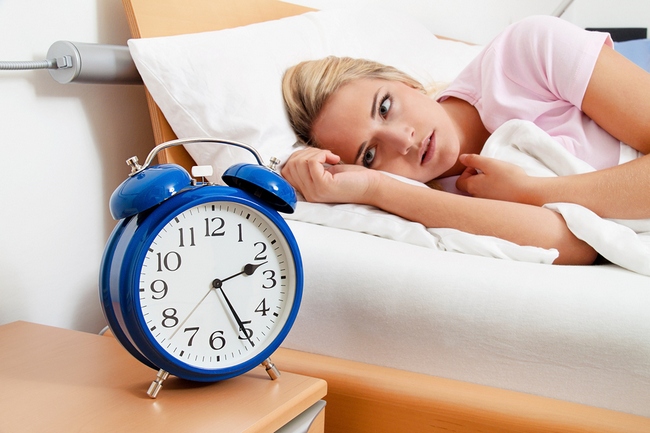- Make It Yourself Lavender Heart-Shaped Bath Bombs!
- 20 Things You Never Knew About “Down There”
- 12 Best Foods For Those Suffering From Arthritis Pain
- 12 Personal Hygiene Mistakes Almost Everyone Makes (Mom Never Told You About #4!)
- 15 Medicinal Plants And Herbs From The Cherokee People
- 12 Mind-Blowing Benefits Of Drinking Coconut Water During Pregnancy
- 12 Outstanding Winter Foods That Won’t Fatten You Up Like A Christmas Turkey
Daylight Savings Time Is Over; How Gaining And Losing Extra Sleep Time Affects Your Health
Daylight savings time is over, which means everyone “lost” an hour in the morning as the clocks were switched one hour ahead. Normally, this means a rough couple of days (or weeks) for many Americans who must now drag themselves out of bed an hour earlier than they normally do. For some, this is enough to significantly throw off their sleep schedule as they struggle to adjust. Let’s explore the effects that sleep (or lack thereof) can have on our health and what you can do to minimize sleeping-related woes now that daylight savings time is over.
Sleep Deprivation and Its Effects on Human Health
Sleep deprivation has unfortunately reached epidemic proportions. In the United States alone, some 83.6 million people— around one third of the population— are not getting enough sleep on a regular basis according to a report by the Center for Disease Control (CDC).
The report claims that these individuals are getting less than seven hours of sleep per night, which the CDC considers the minimum amount required to reduce the risk of coronary heart disease, high blood pressure, diabetes, obesity and other health problems. If this is true, it would make sleep deprivation arguably the largest public health concern facing the country. Other countries like the United Kingdom face the same problem.
The general rule of thumb that most of us are taught to get eight hours of sleep per day— a tall order indeed for many people, especially people who work long hours and consume too much caffeine.
But what exactly does sleep deprivation do to your body? A report in BBC summarized a review of 153 studies detailing how not getting enough sleep can affect your body in all kinds of ways.
- Insufficient sleep can weaken your immune system, making you more susceptible to infections, and lengthening the duration of illnesses like the common cold.
- There is a marked decline in cognitive performance in people who do not get enough sleep. If you ever tried to take a test in school after only sleeping a few hours, you have probably experienced this yourself. Sleep is the natural mechanism by which the brain can clean out neurochemical debris that accumulates over the course of the day as a result of neurological activity. When you don’t get enough sleep, this important process doesn’t take place, and the debris will continue to build up. When this happens over the course of many years, it can increase the likelihood of developing neurodegenerative conditions such as Alzheimer’s disease.
- Numerous articles on the subject have claimed that there is an increased risk of diabetes in those who don’t get enough sleep— but why? It turns out that not getting enough sleep hinders the body’s ability to control blood sugar levels, which can put the body into a pre-diabetic state. This will, over time, increase the chances of developing diabetes.
- Related to the points above, lack of sleep also impairs the body’s production of a hormone called leptin, which triggers the feeling of being full after eating. It can also cause your body to produce too much of a different hormone called ghrelin, which is linked to the sensation of hunger. The combination of these two hormonal factors contributes to an increased risk of obesity for adults who don’t get enough sleep.
Continue to Page 2

































